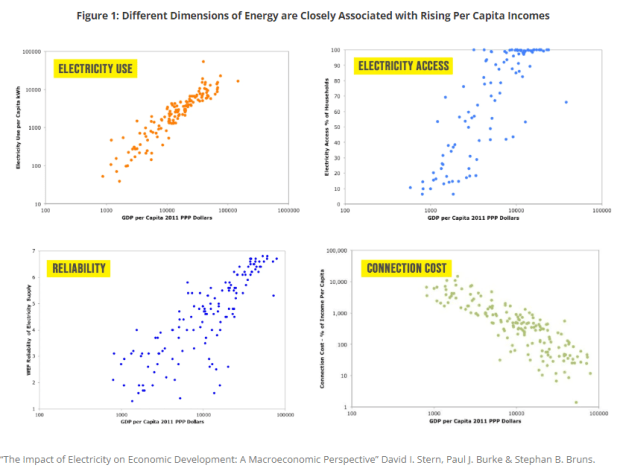
“That Would Be The Road To Hell For America.”
I will never not enjoy that clip. “Clown world” has become so much more than just a meme.
Here in the US, but relevant for Europe as well, we have had two tribes within the energy generation industry that have been at-odds for the better part of the past few decades; oil & gas, and renewables (wind and solar specifically). One side calling for the complete phasing-out of the other. While their opposition is pointing to hypocrisies, chiefly: the heavy reliance on demonized resources in order to develop their operations throughout the production, deployment, operation, and maintenance stack – effectively increasing the demand for that which was demonized in the first place. So what is the point of these foolish, childish attempts to sling mud? Are there not plenty of government subsidies alone to justify growing these renewable energy projects? Why the desire for applying a purity test to the energy and power generation stack? Ignoring the difficulties of power generation efficiency and operational executions to produce economically for renewable projects.
It is beyond reproach that the lengths to which the ESG flag was carried went far beyond logic and reason. Now, the pendulum is rebounding aggressively. Europe recently gave up on ESG and added natural gas as a “green” energy while also caving to pressures applied by reality to refer to nuclear as green. With the likes of Blackrock, S&P Global, Shell’s ditching the carbon credits strategy, and even McDonald’s dropping utilization of ESG narratives in both business activities and public discussion. Energy is one industry in particular that should never have been politicized; we all need it, and we all want it to continually get cheaper, and we all want it to be more abundant. There is no right or left, blue or red, black or white, north or south, that doesn’t need energy – and certainly no one that wouldn’t benefit from an abundance of energy and an ever increasing availability of power.
How about the whole energy moralization “conversation,” which is honestly more like mewling than anything else. Reducing energy consumption does nothing but to guarantee degradation and ultimately dilapidation. And that’s not to mention the conversations that may rely on climate catastrophization for their justification or not. Regardless of whether you’ve read Alex Epstein’s Fossil Future, wherever you stand on the whole “fossil fuels are destroying the planet” conversation, may I recommend two actions to be performed either immediately – before continuing to read here, or immediately following reading this essay:
- Read the February 11, 2019 statement by NASA stating that the continent of Asia has become greener since the continent began experiencing industrialization by its largest populations; the Chinese and the Indians. Then ask yourself, is the increase of carbon content in the atmosphere really so bad when it appears to be fueling an explosion of foliage? Do we not want more plant life on this planet? Or is that just a larp by the environmentalists?
- Watch the lectures by Tom Gallagher that I have linked in between the following paragraphs. Mr. Gallagher provides an abundance of information detailing the long history of the planet’s climate and how it has aggressively changed throughout Earth’s tenure. It will continue to do so, by the way. Take explicit effort to consider just how much information is being accounted for and responded to by complex systems like weather, convection currents, and the water cycle.
PALEOCLIMATOLOGY Part 1
We cannot afford to slow down consumption of energy. Society is constantly seeking advancement, in a virtually infinite number of directions simultaneously. Advancement requires work to be done, requiring energy. In order to push forward, innovation and efficiency improvements are required, which behooves more energy consumption to develop and establish those progressions. Potentially in less energy being consumed in remedial tasks, and a greater share of the efforts being directed towards developing the new way of performing a task that was once more difficult and where skilled labor was harder to come by. Other instances can involve a true innovation in the form of a new technology or method that enables a completely new manner of work to be done. We cannot afford to slow down consumption of energy.
Paleoclimatology Part 2
Energy consumption growth is a requirement for a society to continue functioning, let alone eking-out improvements (more on this later). And just like the body, if we aren’t growing and constantly pushing forward, crushing new limitations, then we begin to rot and ultimately perish. Without the struggles and growth that results from pushing limits, cancers and dysfunction will set in and demise will continue to be pulled closer on the timeline.
Paleoclimatology Part 3
Let’s discuss this relationship of energy availability, energy consumption, and infrastructure with societal advancement and the importance of availability of power, shall we? Then we will discuss some recent developments in the technological space that are laying the groundwork for a very real renaissance across the energy industry.
Tomorrow, we’ll go through the dynamics of energy consumption, not availability, and the relationship that has with GDP growth.
This is a guest post by Mike Hobart. Opinions expressed are entirely their own and do not necessarily reflect those of BTC Inc or Bitcoin Magazine.

Leave a Reply